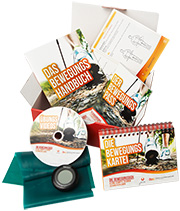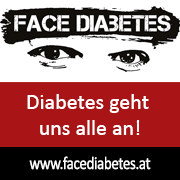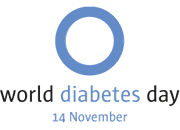Who is the Austrian Diabetes Association (ÖDG)?
The Austrian Diabetes Association (ÖDG) is an academic scientific association. Its regular members are medical doctors or PhDs and postgraduates working in scientifically relevant areas. Its associated members are diabetes advisers and dietologists.
The mission of the ÖDG?
The primary task of the Austrian Diabetes Association is to improve health and quality of life of persons living with diabetes mellitus. Thus the association is committed to the concerns and needs of persons affected by diabetes and continuously encourages and supports the improvement of health care for them. The association supports research in all fields related to diabetes to continuously improve treatment as well as to prevent the disease.
What does the ÖDG do?
- It serves as a “go-between” between specialists providing treatment and patients.
- It provides relevant and quality controlled information for people living with diabetes.
- It constantly works to raise the awareness for diabetes as well as to increase the knowledge on diabetes in the Austrian population.
- It organises advanced training for medical doctors, diabetes advisers and dietologists.
- It organises national scientific educational meetings.
- It actively supports diabetological research in Austria.
- It serves as a reference for all topics related to diabetes
- for health insurances.
- for the Federal Ministry of Health.
- It issues up to date guidelines for the all-encompassing treatment of persons with diabetes.
- With Austrian health politicians, it champions the improvement of prevention and structures of treatment in the healthcare sector.
FACE DIABETES
FACE DIABETES is a campaign of the Austrian Diabetes Association launched in 2014. It aims to raise the awareness for the disease, its consequences for affected persons but also the Austrian society in a sustained, long lasting manner. It also aims to visualise and fight the discriminations people suffering from diabetes face in their daily life. FACE DIABETES was launched as a consequence of the dramatic increase in diabetes prevalence expected for the years to come with its consequent increase in burden of disease as well as costs.
A short cut on activities of the ÖDG:
The ÖDG guidelines are actualised and upgraded on a regular basis
Guidelines issued by medical expert societies are necessary to provide doctors offering treatment with evidence-based therapeutic measures in compact form as a doctor cannot be a specialist in every field. Furthermore, guidelines help to base treatment on generally, commensurable foundations. The latest update of the ÖDG guidelines was done in 2012 (http://www.oedg.org/oedg_leitlinien.html).
ÖDG Nordic City Walk
Since 2001, the ÖDG has organised the annual ÖDG Nordic City Walk in Vienna in order to make people aware of the implications of the disease and the possibilities of primary prevention. For active participants, a short course of instruction was provided by expert trainers.
Diabetes Forum
In 2000, the “Praxisforum der Österreichischen Diabetesgesellschaft” was founded. Under Prim. Univ.-Prof- Dr. Guntram Schernthaner’s editorship, it has since developed into the most prominent magazine for continued diabetological education in Austria. Setting thematic priorities, the Diabetes Forum takes into account the latest diabetological knowledge, observes therapeutic trends and extricates concrete decision guidance for clinical practise. Furthermore, it reports about activities and developments within the ÖDG. The Diabetes Forum stands for founded information, objectivity and diversity of opinion. The pool of authors includes the leading exponents of diabetology and relates disciplines in Austria. The magazine also regularly features guest contributions by internationally renowned experts.
Blue Monument Challenge and World Diabetes Day activities
In 2008, the World Blue Monument Challenge was initiated by the International Diabetes Federation; in 2009, more than 1,000 buildings and tourist attractions were illuminated in blue. On the initiative of the ÖDG, buildings and tourist attractions are to be illuminated in blue again in 2014. The Ars Electronica Centre in Linz, the Bregenz Festival Building, and Congress Salzburg have again agreed to illuminate their façades as a visible sign of solidarity with those afflicted and of the general awareness of the massively increasing number of diabetes cases (ca. 600,000 persons in Austria).
Supporting research
In addition, the ÖDG has been financially supporting diabetological research in Austria for years through awarding research awards for clinical-scientific projects or medical basic research projects. Since 2001, the ÖDG Research Award has been awarded 16 times, and all in all € 500,000 have been paid in support of research. In 2013, the ÖDG Langerhans Award including prize money of € 10,000 was advertised for the third time, in promotion of your researchers.
ÖDG project support
Presently the ÖDG is contributing financially to further projects:
- Pilot project offering Turkish language instruction for gestation diabetics at the Wilhelminenspital
At the walk-in clinic of the Wilhelminenspital, patients with gestation diabetes and whose first language is Turkish are instructed in their mother tongue. The project is intended to work as a role model for other activities, in Vienna and nationwide. In 2009, under the ÖDG umbrella and organised by Dr. Kadriye Aydinkoc-Tuzcu and Prim. Univ.-Doz. Dr. Peter Fasching, the first Turkish diabetes information day was held at the ATIB culture centre in Favoriten, Vienna with 500 participants. - Austrian insulin pump register
It is via the pump register, that all patient data of all patients that are treated with insulin pumps in Austria are to be collected and further processed.
www.insulinpumpen-register.at - DKA prevention campaign
In 2009, the Austrian Diabetes Association in co-operation with the Österreichische Gesellschaft für Kinder- und Jugendheilkunde (Austrian Paediatric Society), and the Federal Ministry for Education, the Arts and Culture (BMUKK) started a nationwide poster campaign for the prevention of diabetic ketoacidosis upon initial manifestation with children and adolescents, at schools, kindergartens, pharmacies, paediatric practices, GP’s surgeries and paediatric wards. The poster campaign, which is going to be continued into 2013, aims to make parents, children, caregivers, and doctors aware of the symptoms of initial manifestation of diabetes mellitus type 1 (increased drinking, urination, weight loss etc.).
- Charity: diabetes camps for children with diabetes
In Austria, there are several diabetes camps (summer and winter). For many afflicted persons, those camps are the only way to receive any child-oriented instruction that can take place outside of in-patient treatment. For in Austria, children are NOT given the possibility to go to a health resort or on rehab. Presently, there is no or very little funding for camp organisers and participating children. Many doctors voluntarily sacrifice their holidays without any amends being made. It is the aim of those camps to offer child-oriented diabetes instruction (e g healthy diet, carbohydrate calculation, insulin adaptation when working out etc.) as well as leisure activities, together with others of the same age group that are afflicted by diabetes. Many parents cannot afford to let their children take part. Therefore, the ÖDG has initiated a charity to enable those afflicted children to take part whose parents otherwise could not afford it. Any donation will benefit the participants 100 per cent. In 2013, the initiative is continued with the support of the Lions Clubs. In 2014 under the logo of FACE DIABETES fund raising was further enforced. - Register of pregnancies with gestational diabetes
Gestation diabetes is the most frequent complication during pregnancy and poses a considerable risk to mother and child alike. In Austria, neither the number of afflicted is known nor the number of women who have a continued metabolic disorder after childbirth. The complication rates for gestation diabetics’ babies are equally unknown. Presently, no updated diagnostic or therapeutic recommendations are being evaluated. By generating a register of pregnancies with gestation diabetes or with manifest diabetes it would be possible to assess the current situation in Austria and compare it with the situations in other countries. In the long run, the treatment of pregnant women is to be improved. This project is mentored by Univ.-Prof. Dr. Alexandra Kautzky-Willer, chairwoman of the ÖDG’s gender and migrants panel.
- ÖDG Exercise Box
The Exercise Box developed by the ÖDG’s prevention panel (www.bewegungsbox.at) aims to motivate those who have hardly been working out or not at all to add more exercise to their lives and to support them in their endeavour to stay committed to the cause. The goal of the Exercise Box is, above all, to propagate the concept of having fun being physically active. Lack of physical activity is on the one hand a crucial factor in developing diseases of affluence such as diabetes mellitus, on the other hand physical activity is a central therapeutic approach for patients already suffering from diabetes mellitus or other diseases of affluence.
For further information:
Austrian Diabetes Association
Währinger Straße 39/2/2
A- 1090 Wien
Tel. + 43 (0) 650 / 770 33 78
Fax. + 43 (01) 264 52 29
E-Mail: office@oedg.at
ZVR-Zahl: 981322328








